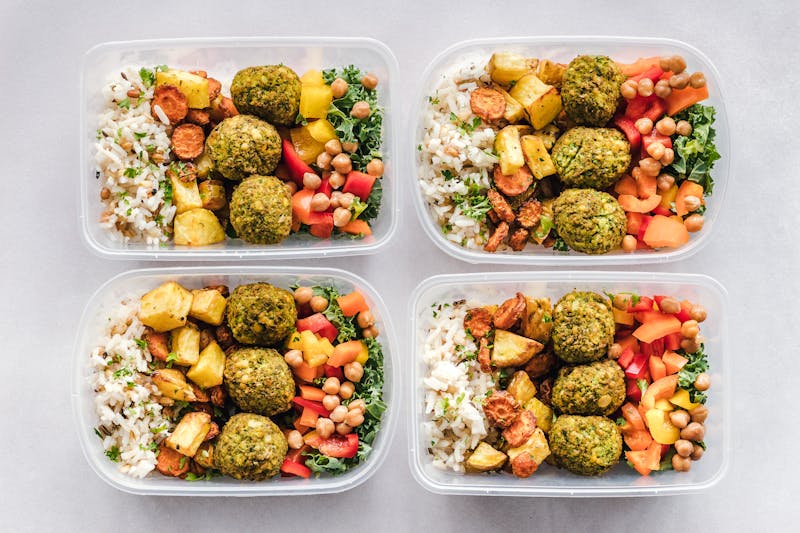Last Updated on December 6, 2025 by shawnshealth
Why do I keep gaining weight? Uncover 5 proven reasons behind unexpected weight gain and how to stop it for lasting, healthy results.
Introduction: Why Do I Keep Gaining Weight?
Why do I keep gaining weight when I’ve been doing everything right—eating healthy, working out, and getting plenty of sleep? It can be frustrating and discouraging. You’re not alone in this struggle, and there are proven reasons why your weight loss efforts may not be working as expected. Understanding these reasons is the first step toward overcoming them.
In this article, we’ll uncover 5 proven reasons why you might keep gaining weight and provide actionable steps to regain control over your body and health. Whether you’ve hit a plateau or feel like you’re sabotaging your own efforts, these insights will help you navigate your weight loss journey.
Weight Loss Principles to Keep in Mind
Before exploring the specific reasons why you might be gaining weight, it’s helpful to understand some universal principles that support weight loss and healthy living. These timeless strategies apply to nearly every weight journey—no matter your starting point.
➡️ Want the complete breakdown? Read our Ultimate Weight Loss & Fat Loss Guide.
Check out this short video from @attn: that’s also super interesting!
Core Principles of Weight Loss
Sustainable weight loss goes beyond quick fixes. It’s about creating habits that support long-term health and energy balance.
- Focus on consistency over perfection
- Choose whole, nutrient-dense foods
- Prioritize daily movement and physical activity
- Stay hydrated and get quality sleep
- Monitor progress with patience and awareness
How to Maintain Weight Loss Successfully
Keeping the weight off can be just as challenging as losing it. These strategies support lifelong results:
- Stick to a routine that feels realistic and enjoyable
- Adjust your plan as your lifestyle changes
- Stay mindful of portion sizes and hidden calories
- Rebuild momentum quickly after setbacks
- Surround yourself with positive support and accountability
Why Weight Loss Isn’t Always Linear
Weight fluctuations are normal. Even when you’re doing everything right, short-term changes in weight don’t always reflect long-term progress.
- Water retention, stress, and hormones can all play a role
- Muscle gain can offset fat loss on the scale
- Progress should also be measured in energy, strength, and habits
Maximize your workouts with the right gear. Check out this selection of essential equipment💪
Table of Contents
Always consult your doctor before starting any new exercise program. The author is not responsible for injuries or health issues arising from the use of this information.
As an Amazon Associate, I earn from qualifying purchases. This means I may receive a commission if you purchase through links on this site, at no extra cost to you.
Key Issues
1. Your Stress Levels Are Through the Roof
Stress can significantly affect your body’s ability to lose weight. When you’re stressed, your body produces higher levels of cortisol, a hormone that can increase appetite and promote fat storage, particularly in the abdominal area. This can lead to weight gain or difficulty losing weight, even if your diet and exercise routines seem perfect.
But the impact of stress doesn’t stop at food cravings. Chronic stress can also disrupt your sleep, leading to poor rest that further exacerbates weight gain.
How to combat stress-induced weight gain:
- Practice stress-reducing techniques such as meditation, yoga, or deep breathing. Just 10 minutes a day can help lower cortisol levels.
- Exercise regularly. Exercise not only burns calories but also helps reduce stress. Cardiovascular activities like running or cycling can be particularly effective.
- Prioritize sleep. Chronic stress leads to poor sleep, which can increase hunger hormones and reduce your metabolism. Aim for 7-9 hours of restful sleep each night.
Read my article how working out can help reduce stress!

2. You’re Eating More Than You Realize
Sometimes the problem isn’t what you’re eating, but how much. Even healthy foods, when consumed in large quantities, can lead to weight gain. The concept of “calories in vs. calories out” still holds true. If you’re consuming more calories than your body burns, the excess will be stored as fat.
But it’s not just about portion sizes—it’s also the hidden calories in your diet that add up quickly. Sauces, dressings, and snacking throughout the day can increase your calorie intake without you even noticing.
How to address overeating:
- Track your food intake using a food journal or an app like MyFitnessPal to help you stay mindful of portion sizes.
- Avoid eating in front of the TV or while distracted, as this can lead to mindless overeating. Pay attention to what you’re eating and how much.
- Practice mindful eating. Slow down, savor your food, and stop when you’re full, even if there’s food left on your plate.

3. You Have Undiagnosed Hormonal Imbalances
Hormonal imbalances, particularly with thyroid hormones, insulin, and cortisol, can play a major role in weight gain. Conditions like hypothyroidism, polycystic ovary syndrome (PCOS), and insulin resistance can make it difficult to lose weight and cause unexplained weight gain.
For example, an underactive thyroid (hypothyroidism) can slow your metabolism, while insulin resistance can make it harder for your body to use glucose for energy, causing fat storage.
How to address hormonal issues:
- Visit your doctor for a full hormone panel to check for thyroid or insulin resistance issues.
- Eat a diet that supports hormonal balance. Focus on whole foods like leafy greens, healthy fats (e.g., avocados and nuts), and lean proteins. These can support both thyroid and insulin function.
- Consider working with a specialist like an endocrinologist or a nutritionist who can help manage and adjust your diet and lifestyle based on your hormone levels.

4. You’re Not Getting Enough Sleep
Sleep is crucial for weight management, yet many people overlook it. Lack of sleep can disrupt the hormones that regulate hunger and appetite. When you don’t get enough rest, ghrelin (the hunger hormone) increases, and leptin (the satiety hormone) decreases. This makes you more likely to crave unhealthy foods and overeat.
Additionally, poor sleep can lead to lower energy levels, which makes you less likely to work out or be active throughout the day.
How to improve sleep for better weight management:
- Aim for 7-9 hours of quality sleep each night. Create a sleep routine by going to bed and waking up at the same time every day, even on weekends.
- Limit screen time at least an hour before bed. The blue light from your phone or computer can interfere with melatonin production, making it harder to fall asleep.
- Create a relaxing bedtime environment. Make your room cool and dark to promote deep, restorative sleep.
Check out my article on how lack of sleep effects weight gain!

5. Physical Inactivity Is Holding You Back
Being sedentary can be a major contributor to weight gain. Our bodies are designed to move, and when we don’t get enough physical activity, our metabolism can slow down, making it easier to gain weight. Additionally, a lack of movement reduces muscle mass, which in turn decreases your calorie-burning potential.
But it’s not just about the gym. Even small movements—like taking the stairs, fidgeting, or walking around the office—add up throughout the day and can significantly impact your calorie burn.
How to combat physical inactivity:
- Get moving with NEAT. Non-Exercise Activity Thermogenesis (NEAT) refers to the calories burned through everyday activities like walking, cleaning, or even standing. Studies show that increasing NEAT can significantly impact your calorie expenditure.
- Exercise regularly. Incorporate at least 30 minutes of moderate exercise into your routine. Whether it’s walking, cycling, or strength training, regular movement boosts metabolism and supports weight loss.
- Take breaks. If you work at a desk or sit for long periods, get up every 30 minutes. A few minutes of walking, stretching, or even standing can help keep your metabolism active.

Conclusion
If you’re still wondering, why do I keep gaining weight? these 5 proven reasons could be at the root of the issue. The good news is that by addressing stress, overeating, hormonal imbalances, sleep quality, and physical inactivity, you can break the cycle of weight gain and start seeing progress.
Remember, weight loss isn’t always linear, and it’s important to be patient with yourself. Consistency, self-care, and paying attention to these key areas can help you overcome the obstacles standing in your way.
External Links:
🔥 Gear to Help You Achieve Your Health and Fitness Goals 💪
If you’re looking for tools to enhance your fitness journey, check out this. Explore top-rated fitness gear on Amazon to enhance your workouts. Check out the latest picks here! 🛒 to support your workouts and progress.
🚀 Find equipment designed to boost strength, endurance, and overall performance!
⚠️ Short disclaimer: As an Amazon Associate, I earn from qualifying purchases.
Weight Loss FAQ: Expert Answers to 8 Common Questions
1. What is the best way to lose weight safely?
- Focus on a balanced diet rich in whole foods (vegetables, fruits, lean proteins, whole grains).
- Incorporate regular physical activity such as walking, cycling, or strength training.
- Aim for gradual weight loss of 1-2 pounds per week to ensure sustainability.
- Stay hydrated and get enough sleep for optimal metabolism.
2. How many calories should I eat to lose weight?
- Weight loss generally requires consuming fewer calories than you burn (a calorie deficit).
- A common guideline is reducing daily intake by 500 calories to lose about 1 pound per week.
- Individual needs vary based on age, gender, activity level, and metabolism.
- Using a calorie tracking app can help monitor intake.
3. Can exercise alone help me lose weight?
- Exercise is essential for overall health and helps maintain muscle mass during weight loss.
- However, diet plays a bigger role in creating a calorie deficit.
- Combining both diet and exercise is the most effective approach.
- Strength training helps boost metabolism by building lean muscle.
4. Are there any foods that boost weight loss?
- High-protein foods help increase satiety and preserve muscle.
- Fiber-rich foods (like vegetables, fruits, legumes) aid digestion and fullness.
- Green tea and coffee may have mild metabolism-boosting effects.
- Avoid processed and sugary foods that add empty calories.
5. How important is sleep in weight loss?
- Poor sleep disrupts hunger hormones, increasing appetite.
- Lack of sleep can reduce motivation to exercise.
- Aim for 7-9 hours of quality sleep per night.
- Good sleep supports metabolism and fat-burning processes.
6. What role does water play in losing weight?
- Drinking water can increase feelings of fullness and reduce calorie intake.
- Staying hydrated supports metabolism and helps the body flush toxins.
- Sometimes thirst is mistaken for hunger, leading to overeating.
- Aim for at least 8 cups (about 2 liters) daily, more if active.
7. How can I stay motivated during my weight loss journey?
- Set realistic and measurable goals.
- Track progress with photos, measurements, or journals rather than just the scale.
- Find a workout buddy or join a support group.
- Celebrate small milestones to maintain enthusiasm.
8. When should I consult a healthcare professional about weight loss?
- If you have underlying health conditions like diabetes, heart disease, or thyroid issues.
- When weight loss efforts are not effective despite consistent efforts.
- Before starting any extreme diets or exercise programs.
- To get personalized advice and support tailored to your health needs.
I have said these things to you, that in me you may have peace. In the world you will have tribulation. But take heart; I have overcome the world. – John 16:33




